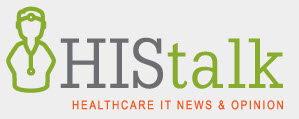06-11-2020, 02:29 AM
Arcadia Launches New COVID-19 Recovery Toolkit to Tackle Looming Challenges for Healthcare System
Market leader was the first to develop a population health toolkit for COVID-19; now releases new capabilities to help with healthcare’s next challenges after the pandemic’s initial wave
Arcadia’s Rapid Response: COVID-19 Surveillance and Engagement Toolkit
As the curve from the number of infections related to COVID-19 was beginning to quickly rise in mid-March, Arcadia quickly developed a COVID-19 Surveillance and Engagement Toolkit with data and resources to help health systems in value-based payment arrangements meet the demands of the pandemic. Those resources include: stratification models to identify patients with the highest need and risk; interactive content in multiple languages for patient outreach and engagement via mobile devices; trusted information for patient access to care including hotlines, mental health programs and e-visit capabilities; and surveilling systems and data from electronic health records, information exchanges, labs, claims and directly from patients.
Since the introduction of Arcadia’s COVID-19 Surveillance and Engagement Toolkit, more than a dozen health systems have used Arcadia Analytics to reach patients via text message outreach and symptom screening tools, an increase of more than 400% compared to historical activity.
“In a very short amount of time, we developed and deployed our toolkit to enable those grappling with the immediate crisis to use innovative methods for engaging patients remotely, extending care manager efficacy, and applying important data and insights to guide decision-making,” said Michael Gleeson, Arcadia’s Chief Innovation and Strategy Officer. “This accelerated adoption of virtual and telehealth care will remain, and it will become more instrumental to how population health is managed.”
COVID-19 Recovery: Economic Stability in Uncertain Times
Arcadia maintains longitudinal health data on over 93 million patients and a robust research data asset. The company developed the following insights and predictions that show how health systems, ACOs, and those in value-based payment models should focus their non-COVID-19 resources during the next phase of the pandemic:
1. Identifying Deferred Elective Care: As states begin to open and more activities are deemed safe, healthcare systems will need to identify patients that have deferred known elective care as well as patients likely to need elective care over the next 3-9 months.
2. Appointment Volume Recovery & Management: Healthcare systems will want to prioritize missed or cancelled appointments based on clinical complexity, revenue considerations, or risk and quality gaps.
3. Maximize Value from Telehealth Tools: Healthcare systems will need to stratify appointment needs by patients that would benefit from in-person care versus those that can be covered through a remote telehealth encounter. Provider organizations should engage patients with notifications that educate them about available telehealth options.
4. Supporting Vulnerable Patient Populations: Healthcare systems will need to support patients with pre-existing medical or mental health conditions, who are likely to face colliding exacerbations due to a loss of support networks, reduced supply chain and access to necessities, and reduced access to the health care delivery system.
5. Quality and Risk in Remote Care Delivery: Healthcare systems should use data to maximize each resource available to work with patients by supporting prioritization and enabling patient-reported outcomes. Organizations should help each care team member engage with more patients for a greater impact on overall contract success.
6. Care Team Extenders: Healthcare systems must improve the efficiency with which care teams can engage patients and manage resource-intensive patients. One effective strategy may be to replace long data collection phone calls with patient screeners that patients complete over text.
“Fundamental shifts back to patient care are already occurring―doctors are relying on telemedicine to care for patients from their homes, and hospital systems are redeploying clinicians in unique ways,” Gleeson says. “Utilization is starting to bounce back and volumes are recovering from the lowest point, which occurred in April. We are seeing growth of about 30% across our data asset.”
Arcadia’s COVID-19 Recovery Toolkit provides resources to help healthcare organizations navigate the long road back to normalcy, from extending their care teams to managing appointment volume.
Arcadia offering industry-wide webinar on 6/18 highlighting customer stories, insights about recovery, and an introduction to the company’s new COVID-19 Recovery Toolkit
On June 18, 2020 at 1:00 PM ET, Arcadia will share successes from customers using its COVID-19 Surveillance and Engagement Toolkit and insights into the next set of challenges facing the healthcare system. Arcadia will introduce its COVID-19 Recovery Toolkit capabilities and share its analysis of the impact of COVID-19 on risk-adjusted premiums along with actions ACOs can take to protect their revenue.
For more information, please visit arcadia.io.
About Arcadia
Arcadia (arcadia.io) is the only healthcare data and software company dedicated to healthcare organizations achieving financial success in value-based care. We work with health systems, providers, payers, and life science companies positioning themselves to win in value-based care, including some of the largest, most complex, and influential health systems and health plans in the country.
Our purpose-built population health platform enables our customers to consistently overperform industry average outcomes by reducing medical expenses, improving risk coding accuracy, and improving quality and patient health outcomes. Our software continuously aggregates and curates the highest quality, most complete and up-to-date data foundation, provides relevant, timely and predictive analytics, and enables action through care management tools and in-workflow insights that present at the point of care.
Arcadia has off-the-shelf integration technology for more than 50 different physical and behavioral health EHR vendors, powered by machine learning that combs through variations in over 93 million longitudinal patient records across clinical, claims, social determinants of health, and operational data sources.
Founded in 2002, Arcadia is headquartered outside Boston in Burlington, MA, with offices in Seattle, Pittsburgh, Chicago, and Rockford, IL. Arcadia has been recognized as a leading vendor by analysts Chilmark, Frost & Sullivan, IDC, and KLAS, and we have been awarded Best in KLAS for Value-Based Care Managed Services in 2019 and 2020.
Media Contacts:
Alyssa Drew
Director, Strategic Marketing
Arcadia
781.202.3775
alyssa.drew@arcadia.io




